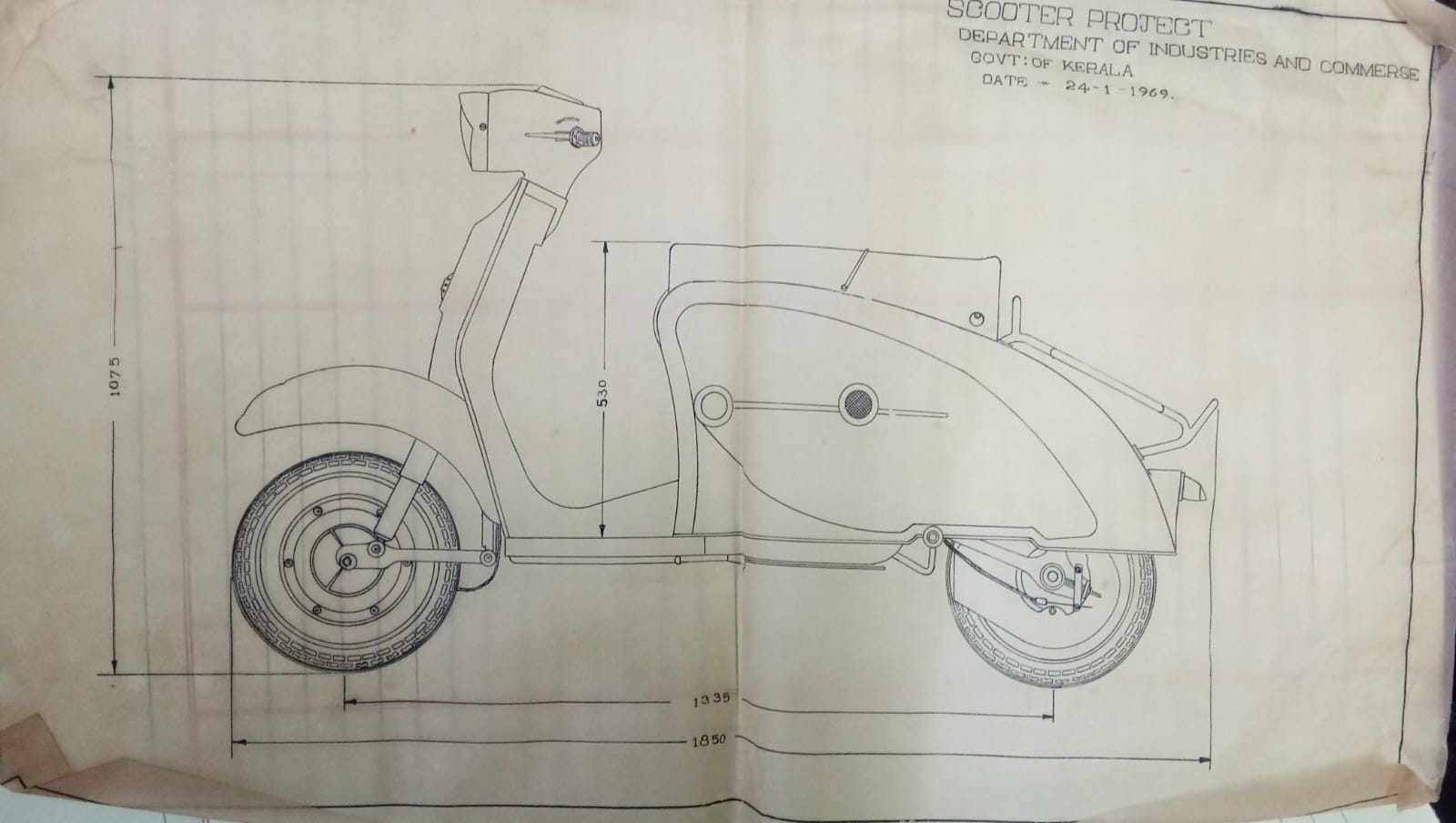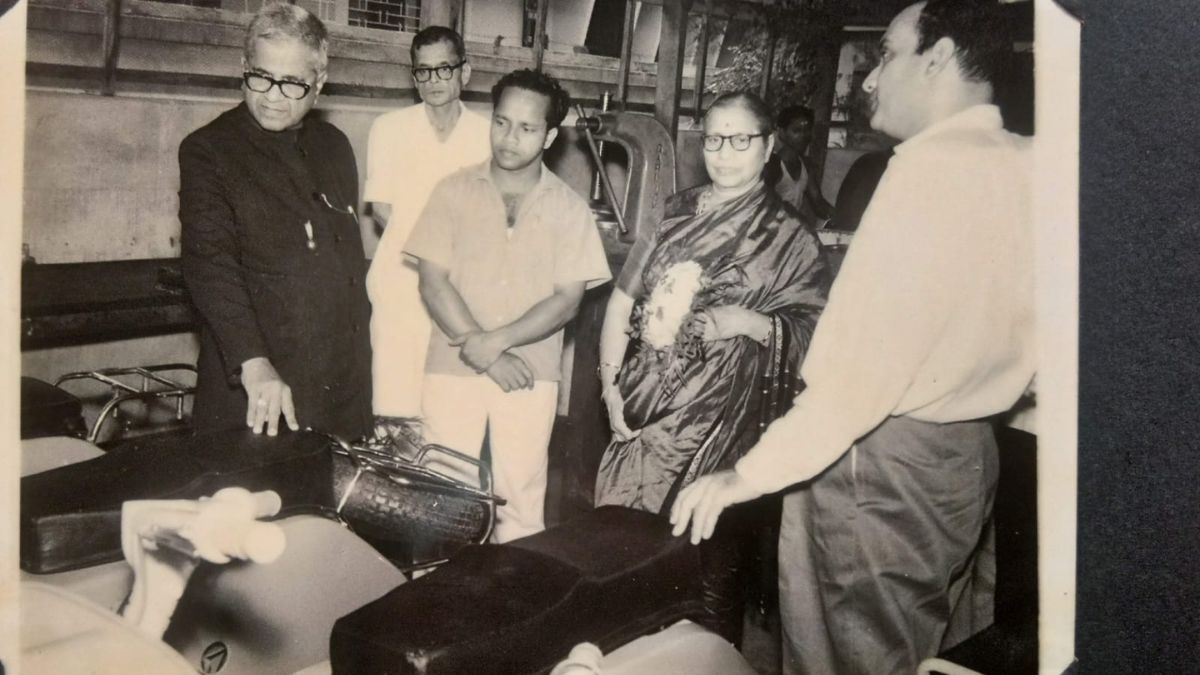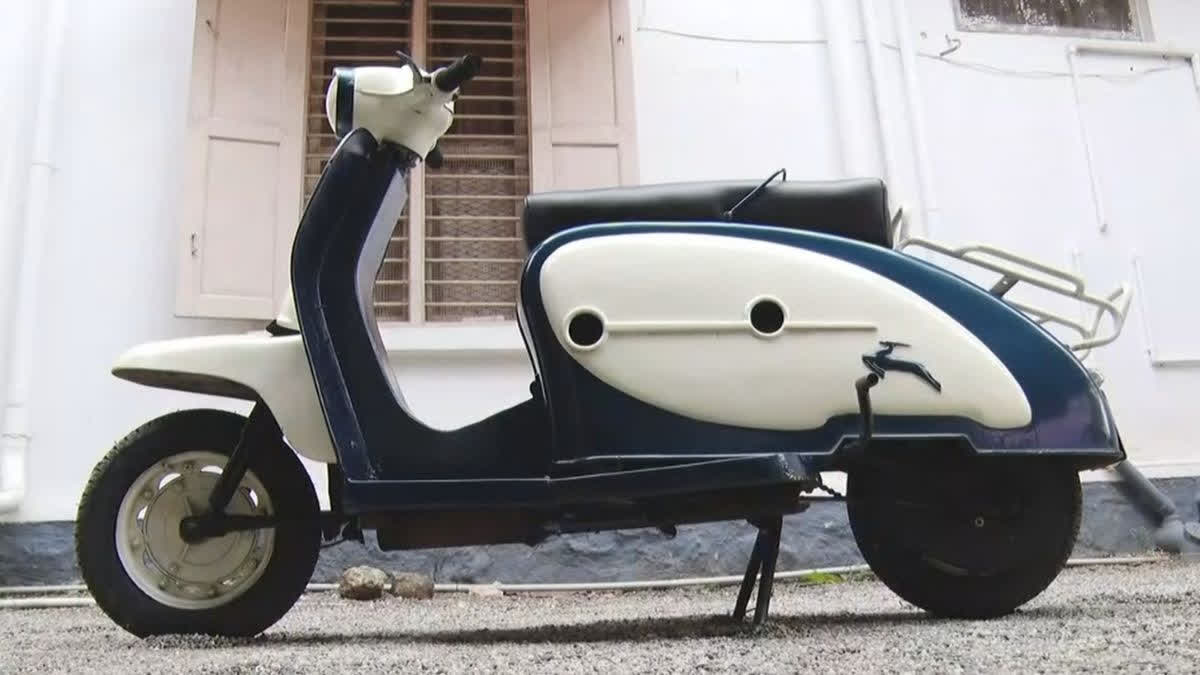Thiruvananthapuram: Atlanta may be a distant echo in India's automobile chronicles, yet the story of its inception is nothing short of remarkable. Did you know the nation's first indigenous scooter sprang from the ambitious dreams of a Malayali visionary? NH Rajkumar, hailing from Kaimanam, Thiruvananthapuram, was the creative force behind India's inaugural homegrown vehicle. The Ranjan Motor Company, founded in 1961, and its flagship product, the Atlanta scooter, have since faded into obscurity. Launched proudly under the Ranjan Motor Company Atlanta name, this scooter symbolises a pioneering spirit that deserves to be remembered.
A dream realised
Atlanta was born in the minds and hearts of a few dedicated individuals. It was a dream realised by a group of enthusiastic yet ordinary people who combined their extraordinary intellect, technical prowess, and skills. The Atlanta proudly holds the distinction of being the first indigenously built scooter in India.
This innovative scooter was the brainchild of N H Raj Kumar, a joint director of the Department of Industry, and brought to life through the hard work of a young engineer, P S Thankappan. Unfortunately, Atlanta was thwarted by indifferent political leadership. The first scooter produced bore the registration number KLT 5732.

Not only was the Atlanta a locally manufactured scooter, but it was also the first gearless scooter in the country. The inaugural model could deliver a mileage of 35 km per litre with a mixture of three ounces of oil and two litres of petrol. This cherished piece of history is still kept as a treasure by Rajkumar's son, Dr Vinaya Ranjan, who fondly recalls his father's and his friends' efforts in designing and developing the scooter during his childhood.
Rajkumar Ranjan is now working to establish the Motor Company, supported by M G Prabhakaran Ashari and plans to release the first prototype with the help of the Community Engineering Department at the Pappanamcode Industrial Estate.
Manufacturing of the Atlanta scooter
Rajkumar's dream took shape with the assistance of Ramankutty Pillai between 1959 and 1961. According to his son Vinaya Ranjan, from 1961 to 1963, Martin, a worker at Ranjan Motor Company, played a pivotal role in bringing the Atlanta scooter to the streets.
NH Rajkumar's family and the Travancore royal family were the first shareholders, initiating the manufacturing of the Atlanta scooter in 1962 with a capital investment of Rs 5 lakh and 12 employees. Approximately 10,500 Atlanta scooters were produced at that time, and distribution began across all districts of Kerala.
Vinaya Ranjan also mentioned that he had heard about scooter sales in Hyderabad, Guntur, Karnataka, and Hubli. The first scooter was priced at Rs 1,200.
Rajkumar initiated the industrial construction of Atlanta by acquiring the land of the current Lakshmi Kalyana Mandapam in Kaimanam, Thiruvananthapuram. Rajan's involvement from 1963 to 1967 was instrumental in the production of Atlanta.

Rajan, an active member of Ranjan Motor Company from 1963 to 1971, played a crucial role in obtaining the company’s license. He went to Delhi and presented the workings of Atlanta to former Indian Prime Minister Indira Gandhi. Upon receiving permission, they began production in Kerala.
Expansion and decline
As the company expanded from a small shed in Pappanamcode Industrial Estate to a manufacturing unit in Kaimanam, the Atlanta scooter started sharing roads with leading models like the Lambretta and Vespa. According to Dr Vinay Ranjan, only the headlight and carburettor were imported from Japan.
In 1971, Rajkumar’s dream transitioned into a cooperative model of indigenous scooter manufacturing. The Kerala State Engineering Technicians Cooperative Society (NCOS) took over Ranjan Motor Company, and later, Kerala Automobiles Limited Company took over the manufacturing of Atlanta, shifting to geared scooters. However, labour strikes soon impacted production and sales, leading to the cessation of Atlanta's manufacturing in 1973. Rajkumar was honoured with an IAS degree for his contributions to Kerala's industrial sector.
Dr Vinaya Ranjan reminisces about the abundance of Atlanta scooters in the Karamana and Poojappura areas of Thiruvananthapuram until 1995. Despite offers of lakhs of rupees from buyers, he refused to sell the historic scooter. Dr Vinaya Ranjan is now preparing to request the government establish a museum dedicated to Atlanta, a golden symbol of Kerala’s industrial history.



